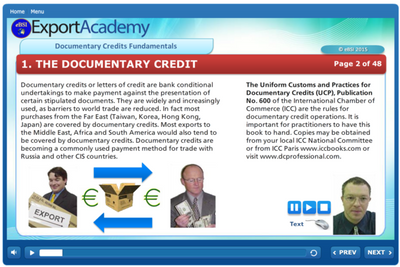Does UCP600 really encourage the nominated bank to provide finance to the beneficiary?

UCP600 has been in force near five years. When it has been published, many experts or banking practitioners believe that one of the main difference between UCP500 and UCP600 lies in that the nominated will be protected if it provides financing to the beneficiary under UCP 600 especially in acceptance or deferred payment credits!
Is that really practical?
Standard in examination of documents
The basic doctrine of documentary credits is material complying on the face. As I pointed out in DCI Volume 3 that the nominated bank may hold different opinions towards documents from the issuing bank‟s. There have been queries to ICC Banking Commission concerning with argument between the nominated bank and the issuing bank in relation to whether the documents are complying.
These queries can be found in TA663 REV, TA664 REV, and TA676 REV. Under such circumstance, the nominated bank may become hesitated in financing to the beneficiary.”
Fraud issue
The fraud issue is not included in UCP. It is in fact a legal issue, which makes everything invalid. Consequently, if the applicant has found out enough proof that the beneficiary is fraudulent, he can ask the issuing bank to reject payment by applying for an injunction from the local court.
However, the issuing bank will have to reimburse the nominated bank or the confirming bank even if fraud occurred under the following circumstance:‘
- (i) the nominated person, or the authorized person of the issuing bank has made payment in good faith under the instructions of the issuing bank;
- (ii) the issuing bank or its nominated person, or authorized person has accepted the bills of exchange under the Credit in good faith;
- (iii) the confirming bank has made payment in good faith; or
- (iv) the negotiating bank has negotiated the Credit in good faith. ’
Therefore, if fraud occurred, from the aspect of the issuing bank, it will examine the documents in a much stricter way to manage its risks.Provided the issuing bank checks out the discrepancies which are not found by the nominated bank or the confirming bank, it is still entitled to refuse payment against discrepant documents instead of injunction.
Therefore, it‟s not easy for the nominated bank to be protected by the issuing bank under UCP600 if fraud happened.
Nomination or not
Article 12 of UCP600 stipulates the nominated bank‟s rights. Moreover, Article 7 also stipulates the issuing bank‟s undertaking to the nominated bank. It seems by appearance that the nominated bank is very important in documentary credits operations.
 However, in many cases, banks are reluctant to act as nomination. If they do, they might face the risks that documents are caviled by the issuing bank. Thus they won‟t get reimbursement from the issuing bank. On the other hand, as explained above, if there is proof to evidence the beneficiary is fraudulent, the issuing bank may be much more stricter in examination of documents.
However, in many cases, banks are reluctant to act as nomination. If they do, they might face the risks that documents are caviled by the issuing bank. Thus they won‟t get reimbursement from the issuing bank. On the other hand, as explained above, if there is proof to evidence the beneficiary is fraudulent, the issuing bank may be much more stricter in examination of documents.Thus, the nominated bank may hardly be protected by the „fraud exception‟ principle. In TA672 REV, the confirming bank purchased the deferred payment undertaking and effected payment to the beneficiary before maturity. But later it received the issuing bank‟s SWIFT message indicating that payment of the credit had been stopped as per court order. Though the conclusion of ICC Banking Commission states:
It must be expected that the issuing bank will seek to have the injunction removed by referring the court to the appropriate articles of UCP 600 and the terms and conditions of the credit. The issuing bank would also be well advised to inform its applicant(s) of the content and effect of sub-article 12 (b) for this and any future transactions.
 It is also well-known that documentary credit is a tool of payment as well as means of financing. However, when the situation is becoming worse, financial crisis, for example, each bank will have to take safety as the primary principle. Banks are profitable organizations after all. Whether or not the nominated bank provides financing to the beneficiary usually depends on agreement between it and the beneficiary rather than protection of UCP600. So, I have to say, the original intention of UCP600 is good and workable, it is not that ideal in practice anyway.
It is also well-known that documentary credit is a tool of payment as well as means of financing. However, when the situation is becoming worse, financial crisis, for example, each bank will have to take safety as the primary principle. Banks are profitable organizations after all. Whether or not the nominated bank provides financing to the beneficiary usually depends on agreement between it and the beneficiary rather than protection of UCP600. So, I have to say, the original intention of UCP600 is good and workable, it is not that ideal in practice anyway.





